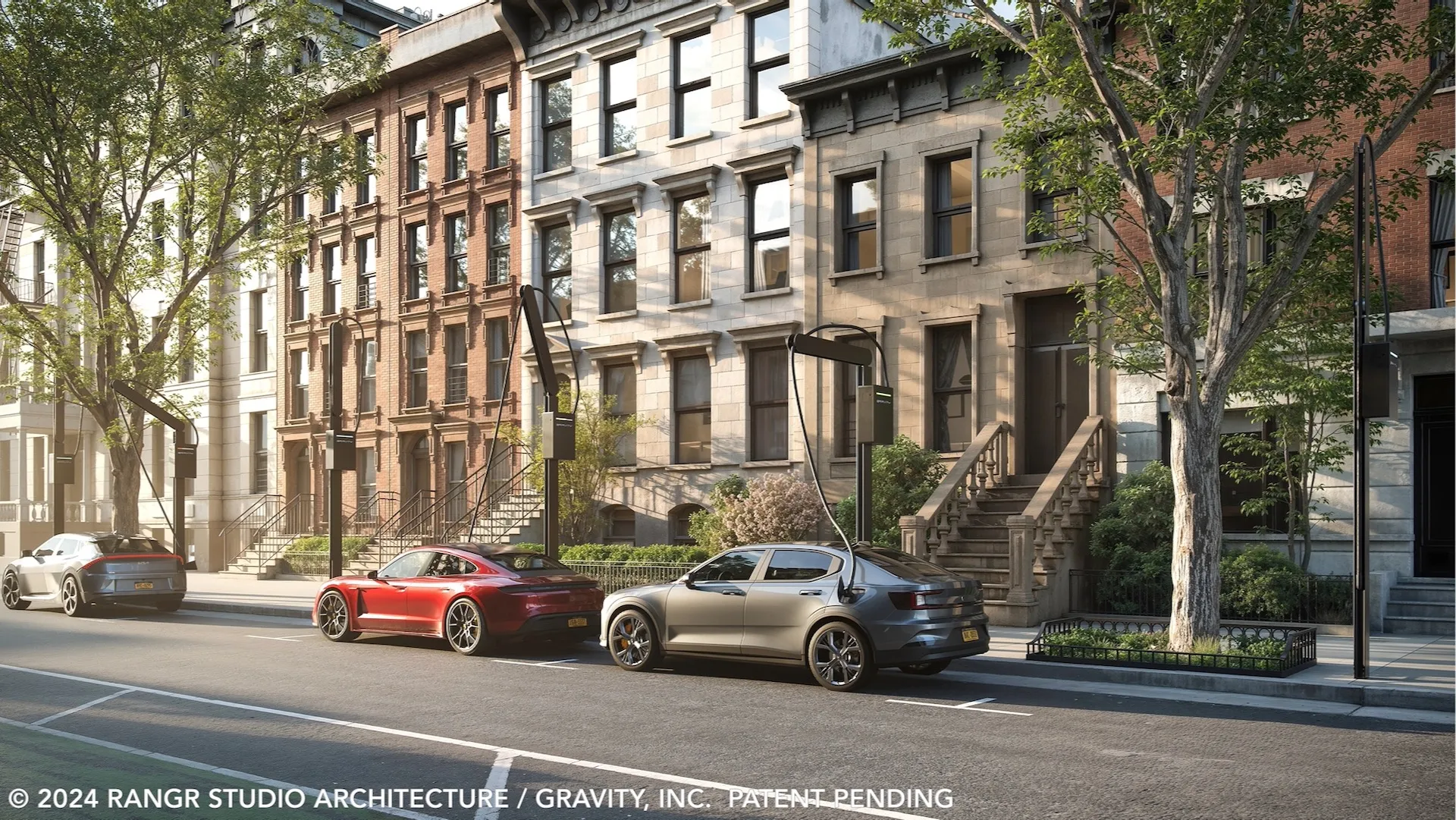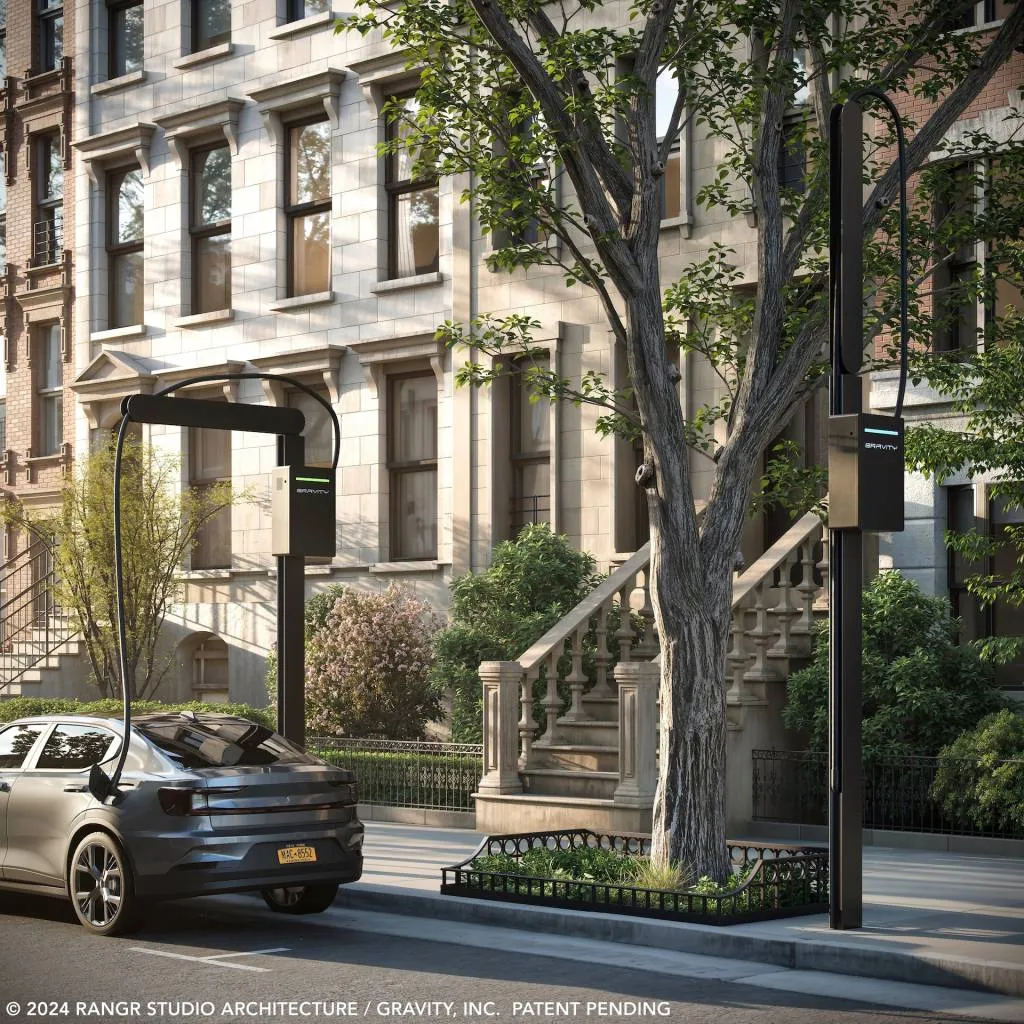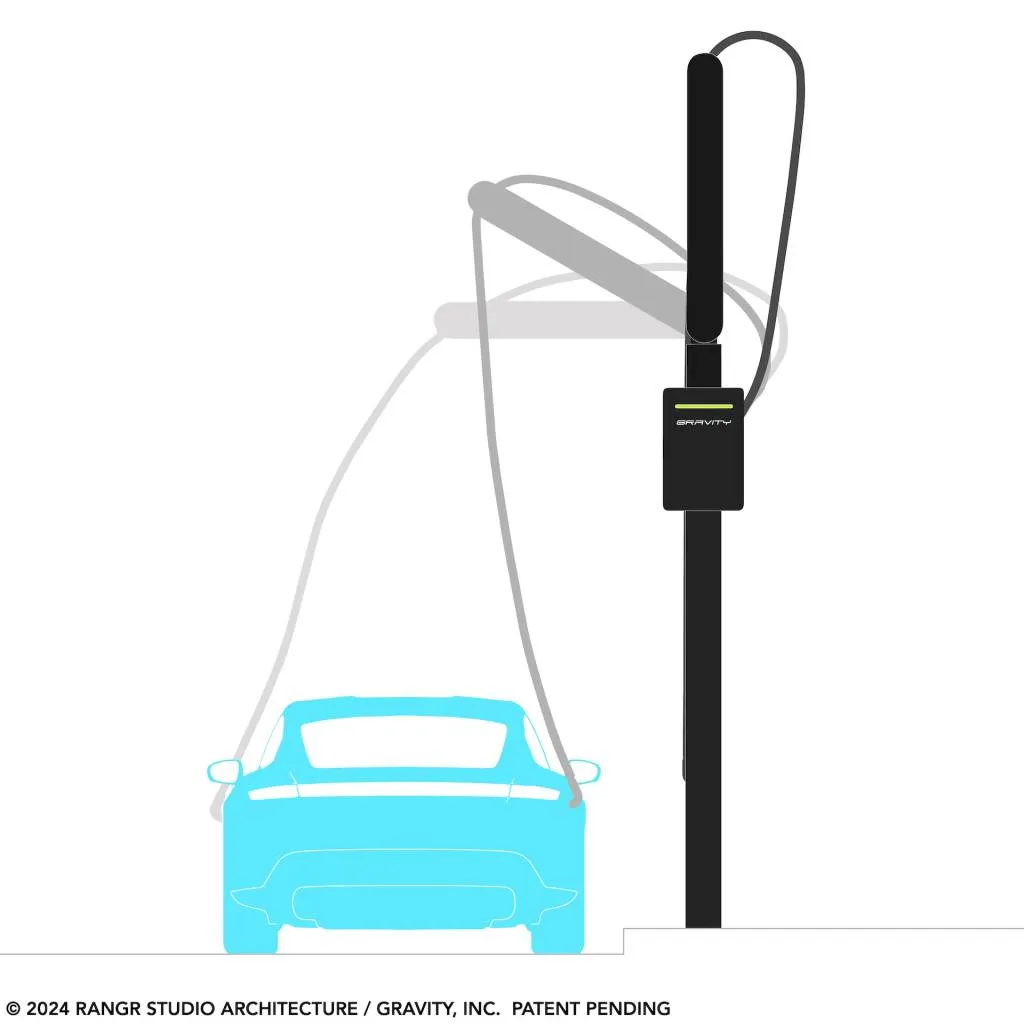

Gravity’s urban fast-charging “trees” could rival Tesla Supercharging
The Gravity charging company on Wednesday unveiled a new design for EV charging stations that it believes will be the foundation of a massive urban fast-charging network.
Styled as Distributed Access Energy Points (DEAPs), the chargers take the form of what Gravity calls “trees,” taller structures in which the charge cable dangles from an extended arm (or would that be branch?) that seems as much like the swivel arms at self-service car washes as anything from nature.
The cable pivots down from a hinged swing arm, which then raises back up when charging is completed, according to a Gravity press release. This should mean that there’s no concern about tripping over cables lying on the sidewalk.

Gravity curbside EV charger
Gravity also claims that no utility upgrades are needed to plant these trees, yet they’re still capable of 200-kw or 500-kw power levels, which can add 200 miles of range in 13 minutes or five minutes, respectively. If Gravity—which claims existing garage-based charging sites are the fastest in America—can follow through on its plans, so they’ll soon be a common sight in urban areas.
“Gravity is striving to develop a network of on-street DEAP charging more expansive than Tesla’s current Supercharger network.” And based on the company’s claims, the DEAP chargers will be more powerful than Tesla’s urban Superchargers, which tend to have lower power than those on road-trip routes.
Curbside chargers like these have been relatively rare in the U.S. up until now. EVgo added some to its network starting in 2019, and now other companies like Voltpost aim to build out Level 2 chargers where apartment-dwellers might charge overnight or for a few hours.

Gravity curbside EV charger
Curbside chargers could help make EVs practical for people who don’t have a driveway, garage, or other place to install a home charger. But relying on public street parking could bring challenges, like internal-combustion cars blocking chargers, cars sitting idle without charging for long periods, and the need to work with municipalities to coordinate installations with parking rules.
If some states are having trouble distinguishing the differences between the required infrastructure for gas stations versus EV charging stations, as appears to be the case in Kentucky, it might be a tough road ahead for companies like Gravity.
Add a comment Cancel reply
Comments (0)
Related posts


Electric SUVs: Top 6 Models for Family Trips











